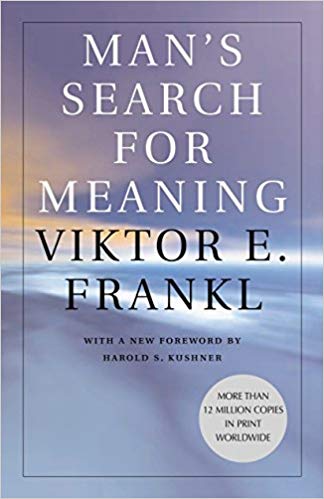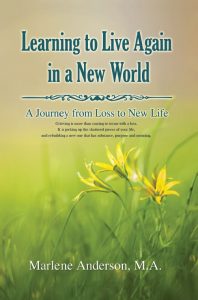Listen to this episode of the Focus With Marlene Podcast
Click here to listen to today’s podcast episode.
Click here to get caught up on all episodes in this series on recovering from loss.
“Love is patient, love is kind. It does not envy, it does not boast,
it is not proud.
It does not dishonor others; it is not self-seeking.
It is not easily angered,
it keeps no record of wrongs.
Love does not delight in evil but rejoices with the truth.
It always protects, always trust, always hopes, always perseveres.”
—I Cor. 13:4-7 NIV
When any longstanding conflicts are dumped onto our grief and loss, they add another layer of conflicting thoughts and emotions. Unresolved issues between you and the deceased can initiate feelings of shame or guilt. You may not have had a chance for reconciliation or resolution before death.
If losses were the result of random acts of violence, accidents, suicide or any unforeseen death, we may be left with a multitude of unanswerable questions and feelings of anger, confusion, guilt, anxiety, fear and remorse.
If you had been a victim of past abuse, abandonment, rejection or injustice; or lived with years of misunderstandings or conflict with this person who has now died, you will be left with a multitude of incongruous emotions. It might seem as if death has cheated you from finding resolution.
- What happens to all that anger and resentment?
- How do you process it all?
- Does it get buried with the person or will you continue to carry that bitterness with you?
Death doesn’t automatically release us from any anger or resentment we may have.
We will suffer tragedies that are associated with someone’s lack of responsibility or carelessness.
Coming to terms with injustice, tragedies and losses of any kind, whether in our past or present, first requires acceptance. Hanging on to our losses and injustices is like carrying around a huge suitcase full of rocks and stones. It keeps getting heavier and heavier and robs us of our ability to move forward.
Discover a new way
 No matter what has happened, to get beyond grief, we need to come to terms with what has happened. Coming to terms means we stop denying, fighting or struggling with what can’t be changed.
No matter what has happened, to get beyond grief, we need to come to terms with what has happened. Coming to terms means we stop denying, fighting or struggling with what can’t be changed.
We correct what is correctable and then make a deliberate choice to let go of the conflict and bring forward what is good. As with any grievances we might have, however legitimate they may be, if we hang onto them, we are the ones who continue to pay the price.
Acceptance doesn’t mean everything will suddenly be back to normal or okay. It simply means we stop fighting and arguing about how cruel the world is or how badly we have been treated. Life is not fair. We can grumble and moan and rant and rave, but we can’t change history; we can’t change what others have done or what we have done.
By making a conscious and deliberate choice to let go of resentment, we can experience a different outcome.
As we let go of bitterness, we will be able to see things for which we can be grateful. There is some good that can come out of the worst atrocity. We are changed when we rise above the injustice of the world. Instead of attacking and seeking revenge, we can develop a compassion and understanding for others who may also be struggling. Seeing the pain of a neighbor, we can reach out with a word of understanding and comfort.
In any moment in time, we choose how we respond to life.
Victor Frankl, a psychiatrist, Jew and survivor of the concentration camps of WWII wrote:
“To live is to suffer; to survive is to find meaning in the suffering.”
 In his book, Man’s Search for Meaning, he shares that even in the horrendous conditions of Auschwitz, “What alone is the last of human freedoms is the ability to choose one’s attitude in a given set of circumstances.”
In his book, Man’s Search for Meaning, he shares that even in the horrendous conditions of Auschwitz, “What alone is the last of human freedoms is the ability to choose one’s attitude in a given set of circumstances.”
We will be challenged to live our faith and values in the face of death and losses.
We will be challenged to let go of unresolved conflicts that keep us stuck in an endless cycle of discontent. We choose how we will respond to life – both in our past and in the future.
We will be challenged to make decisions that go against our desire for payback.
But it is in those challenges where we grow and become more of who we are – a child of God and someone who desires to live a life of hope and faith. No matter the struggle, we can grab hold of that love extended to us by God and work through the knots and tangles of living.
It may be difficult to work through unresolved conflicts by ourselves. If you are struggling, seek the assistance of a trained therapist. While we might not find all the answers to our questions, it is important to ask them. It is in in the asking where we can address the resentments that stick to us like glue and find a way to put them to rest. When we become stuck, our grief is extended.
Next week’s post will explore a little further these troubling emotions. You will also find more detailed information in Appendix A of my book, Learning to Live Again in a New World.
 Learning to Live Again in a New World
Learning to Live Again in a New World
We need validation for the turmoil of thoughts and emotions we experience. But we also need the tools necessary to create a new beginning that is both satisfying and meaningful. My new book, Learning to Live Again in a New World, offers those tools to help work through the problems you might be facing.
It is a guide to help you through the ups and downs of grieving a significant loss. And it includes a study guide at the end for use with groups.
Marlene Anderson

